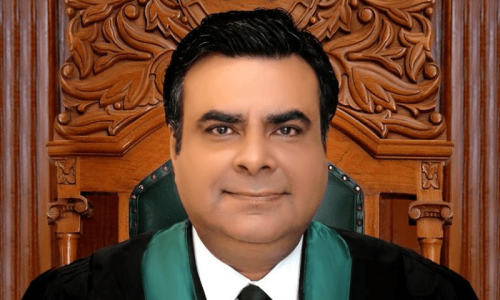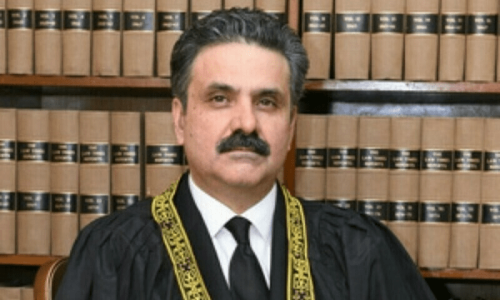PESHAWAR, Nov 5: A two-member bench of the Peshawar High Court on Wednesday issued a notice to the National Accountability Bureau in two writ petitions challenging the non-encashment of the National Saving Certificates of petitioners.
The bench comprising Mr Justice Nasirul Mulk and Mr Justice Ijazul Hassan fixed Nov 13 for the next hearing.
The petitions are filed by two residents of Peshawar, Mir Afzal and Bukht Munir, stating that the National Saving Centre had not been encashing their certificates to the tune of Rs 1.4 million on the ground that they had received direction from the Federal Investigation Agency (FIA) in that connection.
The petitioners stated that the NAB and the FIA had no powers to freeze accounts of an account-holder as it was violation of the Banking Companies Act.
The petitioners stated that the Anti Corruption Establishment had registered two cases against their father-in-law, Yar Khan, who was a former accountant of the FATA Development Corporation.
They stated that last year the Peshawar High Court granted bail to Yar Khan. They added that after he was released on bail the NAB had directed the ACE to send his file to the bureau. That act of the NAB, they claimed, had already been challenged before the high court by Yar Khan.
They added that when they approached the National Saving Centre they were informed that their certificates could not be encashed. The petitioners stated that they were informed that directives were issued by the FIA in that regard. Later on, the FIA claimed that their case was now with the NAB.
Advocate Arif Khan appeared for the petitioners and argued that the petitioners had purchased the said certificates in 1992, whereas the case against their father-in-law was registered in 2002.
He argued that the petitioners were businessmen and they got nothing to do with the affairs of their father-in-law.
Mr Khan contended that the purchasing of the certificates was as a result of a contract between the Centre and the petitioners and no agency including the NAB and the FIA had authority to freeze their accounts. He added that these certificates were given protection under section 41 and 42 of the Banking Companies Act. He said that under the law even the banks were not bound to disclose accounts of their clients to these agencies.















































Dear visitor, the comments section is undergoing an overhaul and will return soon.